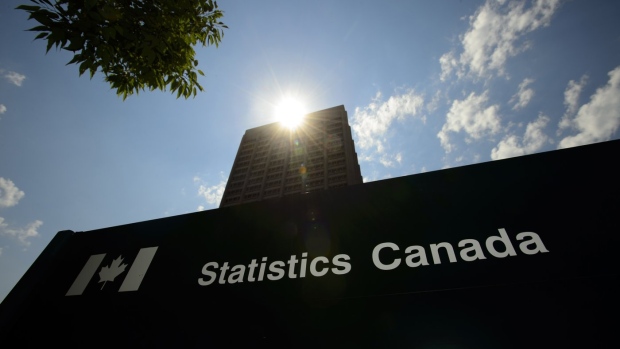Mar 19, 2024
The Daily Chase: Inflation comes in lower than expected at 2.8%
, BNN Bloomberg

Here are five things you need to know this morning:
Inflation cools to 2.8%: Canada’s consumer price index rose at a 2.8 per cent annual pace in February, lower than January’s 2.9 per cent and lower than the 3.1 per cent that economists were expecting. Statistics Canada says a deceleration in food prices was a major factor dragging the rate down, with prices for food purchased at stores increasing by 2.4 per cent over the past year. That’s down from 3.4 per cent in January. On the other side of the ledger, gasoline was a major factor to the upside, rising by four per cent in February. If gasoline is stripped out of the data, the inflation rate was 2.9 per cent. That’s down from 3.2 per cent previously. Overall, the numbers are an encouraging sign for anyone hoping for a rate cut any time soon. Pricing on the swaps market increased the odds of a rate cut next month almost immediately after the numbers came out; to about 25 per cent. That’s roughly twice as high as that likelihood was yesterday.
Positive thinking in Japan: It’s the end of an era in Japan today as for the first time in 17 years, the country’s central bank has decided to raise its benchmark interest rate out of negative territory. The Bank of Japan’s lending rate for overnight borrowing by banks was raised to a range of up to 0.1 per cent from minus 0.1 per cent previously. That may not sound like much of a change, but it’s a major policy reversal after the central bank had kept its rate below zero since February 2007 in an attempt to stimulate the country’s moribund economy. Unlike most developed economies, Japan’s economy has been experiencing slow growth for much of the last two decades, as a high debt load and rapidly aging population have sapped the country’s economic potential. Negative rates on cash are a disincentive to save, and were the central bank’s way of encouraging borrowing to spend and invest. Inflation has soared around the world in recent years and Japan is no exception, with the country’s CPI coming in above the central bank’s two per cent for two years now. That has given the country’s central bank the confidence to raise lending rates above zero again.
Canadian cancer drug company gets US$2.4B takeover offer: Hamilton, Ont.-based Fusion Pharmaceuticals has accepted a takeover offer from British pharma giant AstraZeneca for US$2.4 billion. That’s twice what the shares of the NASDAQ-listed drug company were worth yesterday, but AstraZeneca is interested in acquiring the company’s promising prostate cancer drug, which is currently undergoing Phase 2 trials. AstraZeneca says no changes are planned for the company’s operations in the U.S. and Canada after the deal that’s expected to close in the second quarter.
Business insolvencies are surging: There’re more evidence of financial stress in Canada’s economy this morning as credit monitoring agency Equifax says business insolvencies rose by 40 per cent in the fourth quarter of last year and the pace of filings could get even faster. The company said in a release Tuesday that insolvency filings are surging, as are the number of businesses that missed a credit payment — up 14 per cent in the quarter. Those financial struggles jibe with other recent reports showing how two years into a rate hiking cycle, consumers and enterprises are starting to tap out in the face of high rates. Earlier this month, Equifax reported that the mortgage delinquency rate more than doubled in Ontario, and rose by two-thirds in B.C.
Xploring options: Canadian high-speed internet provider Xplore Inc. has held talks about potentially breaking itself up as it’s looking for cash to build out its fibre network, Bloomberg reports. The company and its creditors have discussed a deal which would separate the company’s assets in Ontario and Quebec from the rest of the company and out of the reach of its creditors. The company’s main business is as a provider of internet services to people in rural communities who are currently underserved by major networks. The company has been negotiating with its lenders since January to come up with a plan to cover its debts, which includes a term loan of $995 million due in 2028. An interest payment on its debt is due at the end of this month.